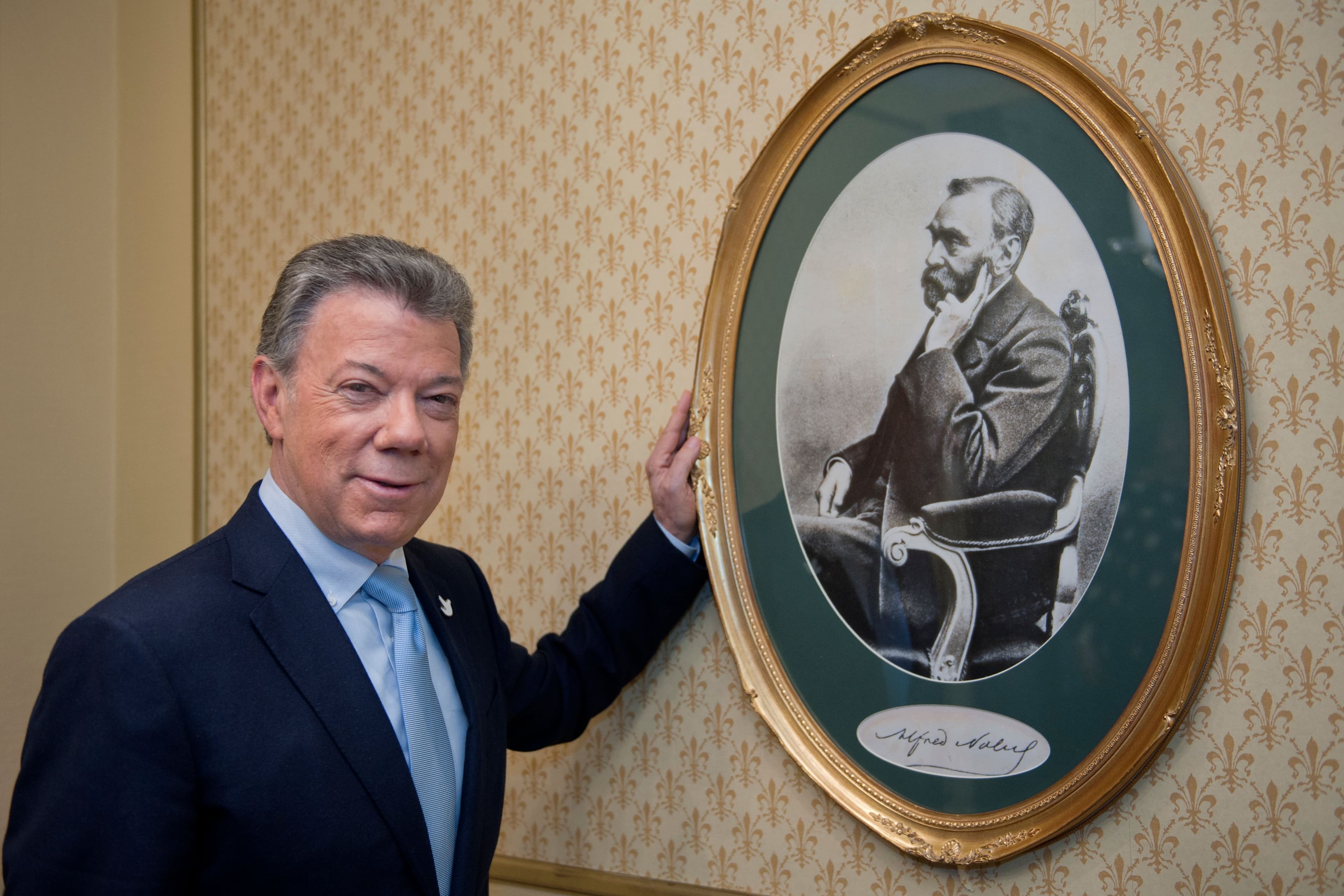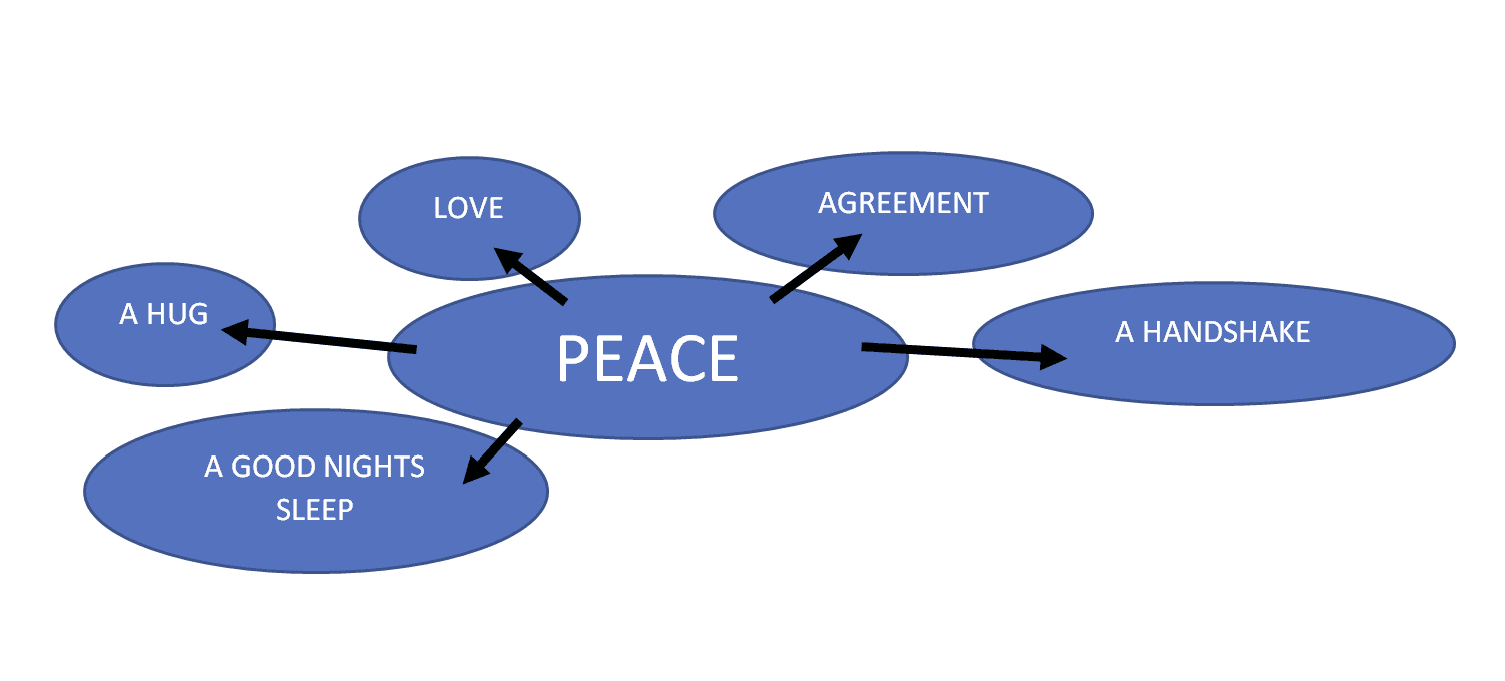10-13 years, 13-18 years
What is the Nobel Peace Prize?
Themes: Nobel Peace Prize
Duration: 90 minThis lesson is about the Nobel Peace Prize and the history behind the award. The assignments can be used as an introduction to the Nobel Peace Prize and also as an introduction to a more philosophical lesson about peace as such. Is peace more than the abscence of war? If so, what defines a peaceful world and a peaceful life?
Assignments
Initiate the assignment with these questions, and let the students write down their first thoughts.
- What do you know about the Nobel Peace Prize?
- What does it take to be awarded the Nobel Peace Prize, do you think?
- Do you know of any previous Nobel Peace Prize laureates?
- Are there any Nobel Peace Prize laureates from your country?
Show this film (6 minutes) about the Nobel Peace Prize:
Discuss the student´s answers to the initial questions (from introduction)
- What do you know about the Nobel Peace Prize?
- What does it take to be awarded the Nobel Peace Prize, do you think?
- Do you know of any previous Nobel Peace Prize laureates?
- Are there any Nobel Peace Prize laureates from your country?
1. Read this to the students:
“Peace can be defined as the opposite of war, but it can also accommodate more than the absence of war.“ Colombia’s President, Juan Manuel Santos, was awarded the Nobel Peace Prize in 2016 “for his resolute efforts to bring the country’s more than 50-year-long civil war to an end”. But the prize was also a tribute to the Colombian people for never giving up on a peaceful solution. Santos as negotiator wanted to include all parts in the conflict and let all be heard. Here is his quote: “Peace is more than the absence of war.”

Juan Manuel Santos, 2016
2. Discuss these two questions with the students:
- What do you think Santos means when he said
- “Peace is more than the absence of war”?What do you associate with peace?
3. Individual assignment: Make a mind map and write down all the words you associate with peace. Here is an example:

4. Discuss in class the things that the students associate with peace. Did they find it true that peace is more than the absence of war?
1. Read this to the class:
“The Nobel Peace Prize rewards people and organisations who make a difference for others by promoting peace in all its forms. In his will, Alfred Nobel outlined three criteria for the Peace Prize: Disarmament, peace congresses and brotherhood between nations. These standards have since been interpreted and expanded to include other ways of promoting peace, such as human rights, negotiation and humanitarian work.”
2. Write this list of criteria for the Nobel Peace Prize on the board
- International cooperation, agreements between nations
- Negotiation
- Disarmament
- Human Rights
- Humanitarian work
- Sustainable development and environmental work
3. Divide the class into 6 groups and let the groups read about these 6 Nobel Peace Prize laureates and take notes as they read. After 10-15 minutes, group them so that the groups have 1 “expert” of each laureate:
- Norman Borlaug https://peaceprizelaureates.nobelpeacecenter.org/en/laureate/1970-norman-ernest-borlaug
- Desmund Tutu https://peaceprizelaureates.nobelpeacecenter.org/en/laureate/1984-desmond-tutu
- Jody Williams https://peaceprizelaureates.nobelpeacecenter.org/en/laureate/1997-jody-williams
- Rigoberta Menchuhttps://peaceprizelaureates.nobelpeacecenter.org/en/laureate/1992-rigoberta-menchu-tum
- Martii Antisaari https://peaceprizelaureates.nobelpeacecenter.org/en/laureate/2008-martti-ahtisaari
- Mother Teresa https://peaceprizelaureates.nobelpeacecenter.org/en/laureate/1979-mother-teresa
4. Each student presents a laureate for the rest of the group.
5. Discuss within the group what kind of work the different laureates have done and why (which criteria) they were awarded the Nobel Peace Prize.
6. Each group makes a chart and puts the names of the laureates where they seem to belong. One laureate might fit more than one criterium.
(print out from file)
7. Discuss the results in the class
8. Ask the student to write down on a small piece of paper their own answer to this question: Let us say that you will be the next person to be awarded the Nobel Peace Prize. Whatwouldyourworkforpeace be? Put all the answers on the wall in the classroom.